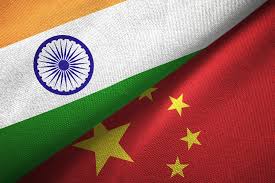China’s incursions along LAC are not anomalies. They are calibrated tests of India’s resolve.
As the world’s most populous democracy and a rising economic power, India stands at a pivotal crossroads in the Indo-Pacific—one defined not merely by trade routes or strategic alignments, but by the principles it chooses to defend. In the face of an increasingly assertive China, Prime Minister Narendra Modi cannot afford to project ambiguity or accommodation. On the contrary, weakness on China emboldens aggression, undermines regional stability, and risks sacrificing hard-won democratic credibility for the illusion of short-term pragmatism.
China’s incursions along the Line of Actual Control (LAC) are not anomalies—they are calibrated tests of India’s resolve. From the deadly 2020 Galwan clashes to recent infrastructure build-ups in disputed border zones, Beijing’s pattern is clear: incrementally shift facts on the ground, sow confusion, and normalize control. A tepid Indian response, whether rhetorical or strategic, only validates this playbook.
But the challenge is not limited to the Himalayas. China’s deepening influence in Nepal, Sri Lanka, and the Maldives—backed by economic leverage and political coercion—amounts to a silent encirclement. Simultaneously, its alliance with Pakistan and continued vetoes in multilateral forums reinforce a strategic posture that views India less as a neighbour to coexist with and more as a rival to constrain.
To counter this, India must embrace a doctrine of clear-eyed deterrence. This means accelerating infrastructure parity along the LAC, deepening intelligence-sharing with Quad partners, and rebalancing trade to reduce dependence on Chinese imports in critical sectors. It also means articulating a diplomatic posture that does not flinch from calling out China’s violations of international norms—whether in Hong Kong, Xinjiang, or Tibet.
Critics may warn against inflaming tensions. Yet history cautions that appeasement rarely secures peace; it often invites further transgressions. India does not need reckless confrontation—but it does need principled firmness. Weakness breeds instability. Strength, rightly exercised, can preserve it.
In the coming years, the Modi government will be judged not just by its economic reforms or populist appeal, but by its legacy of leadership in turbulent times. A bold, unyielding stance on China is not merely about safeguarding borders—it is about affirming India’s role as a defender of democratic values in an increasingly contested world.
* Nephew of the Dalai Lama, Khedroob Thondup is a geopolitical analyst.







